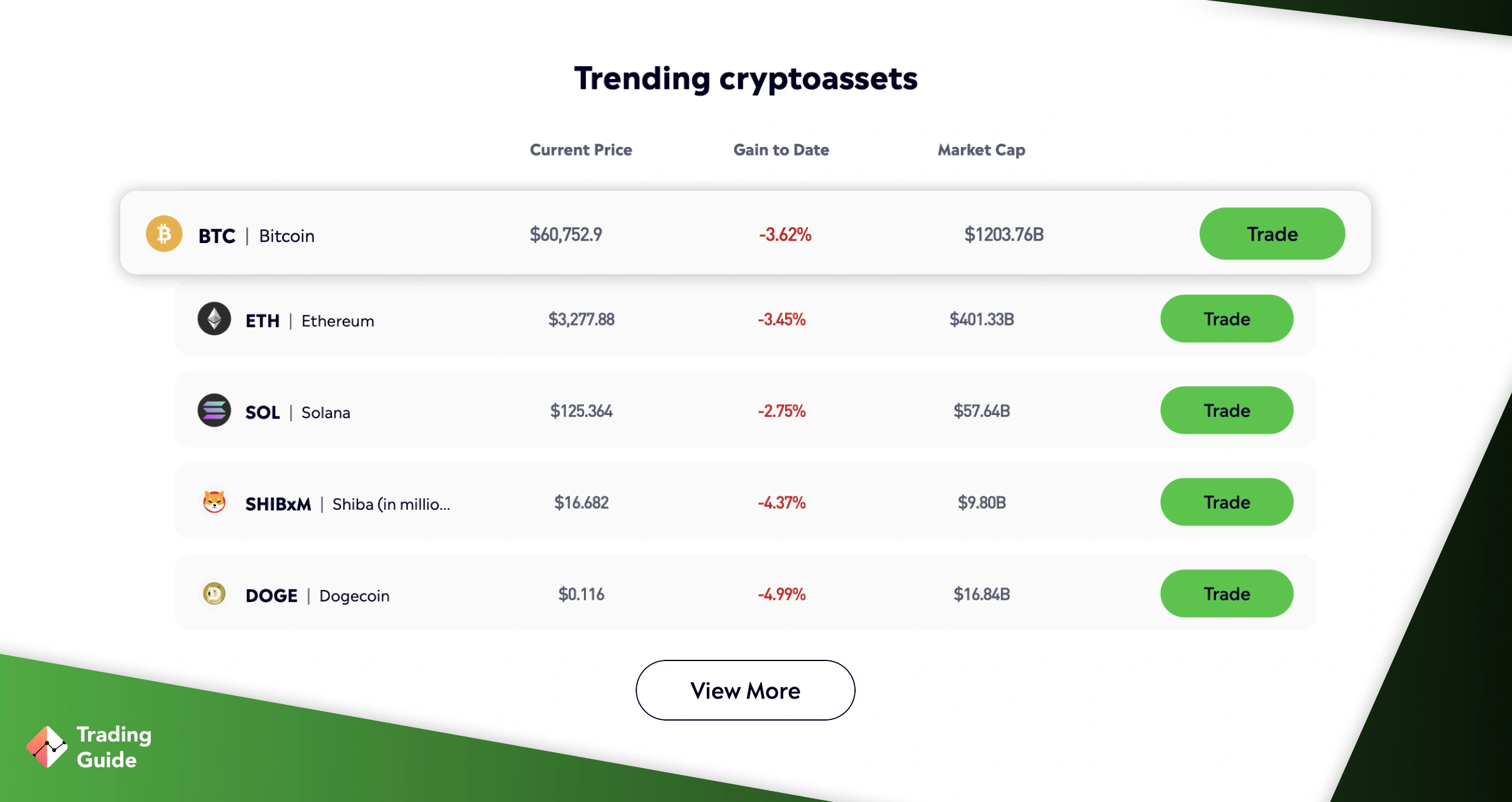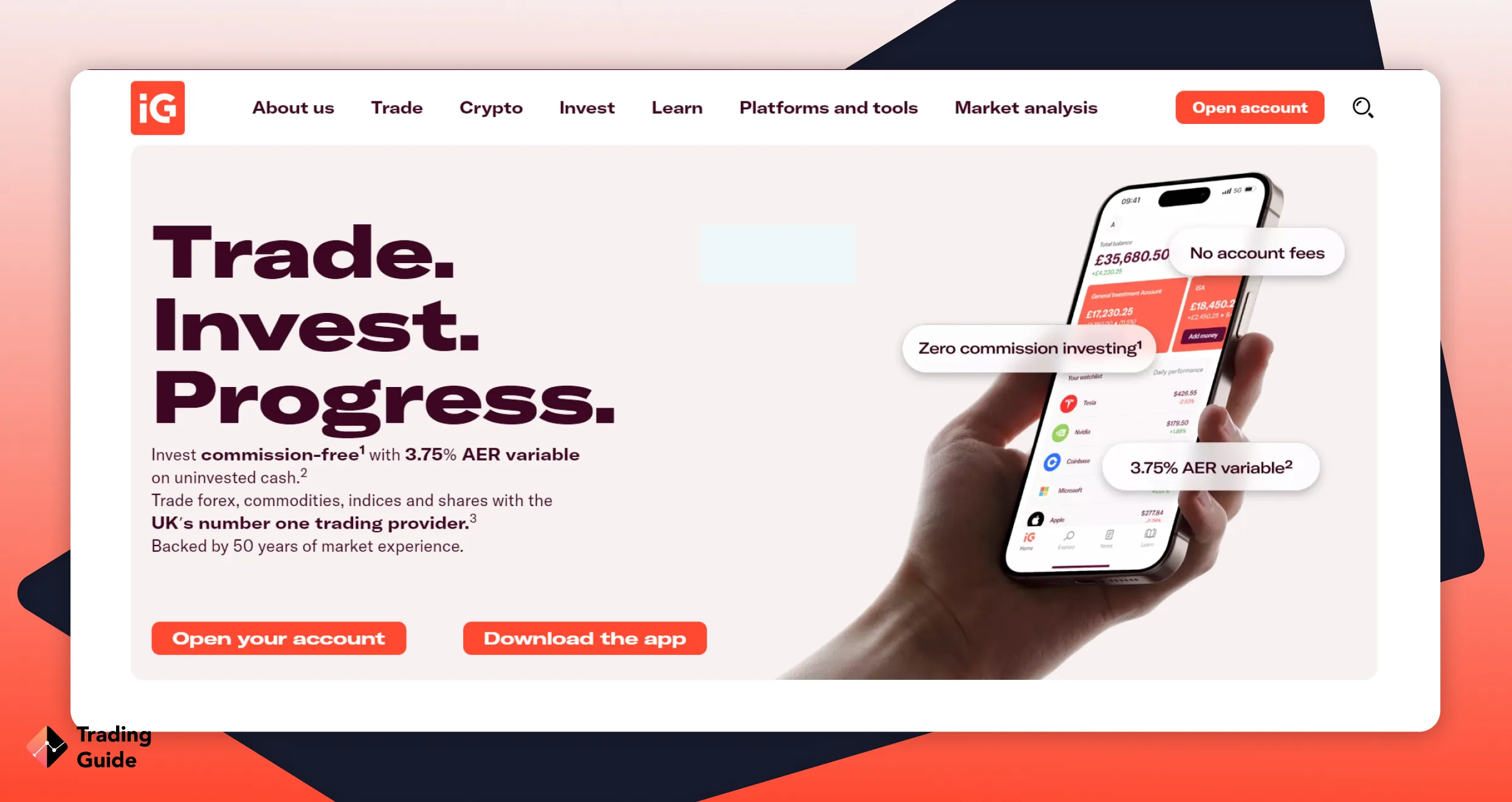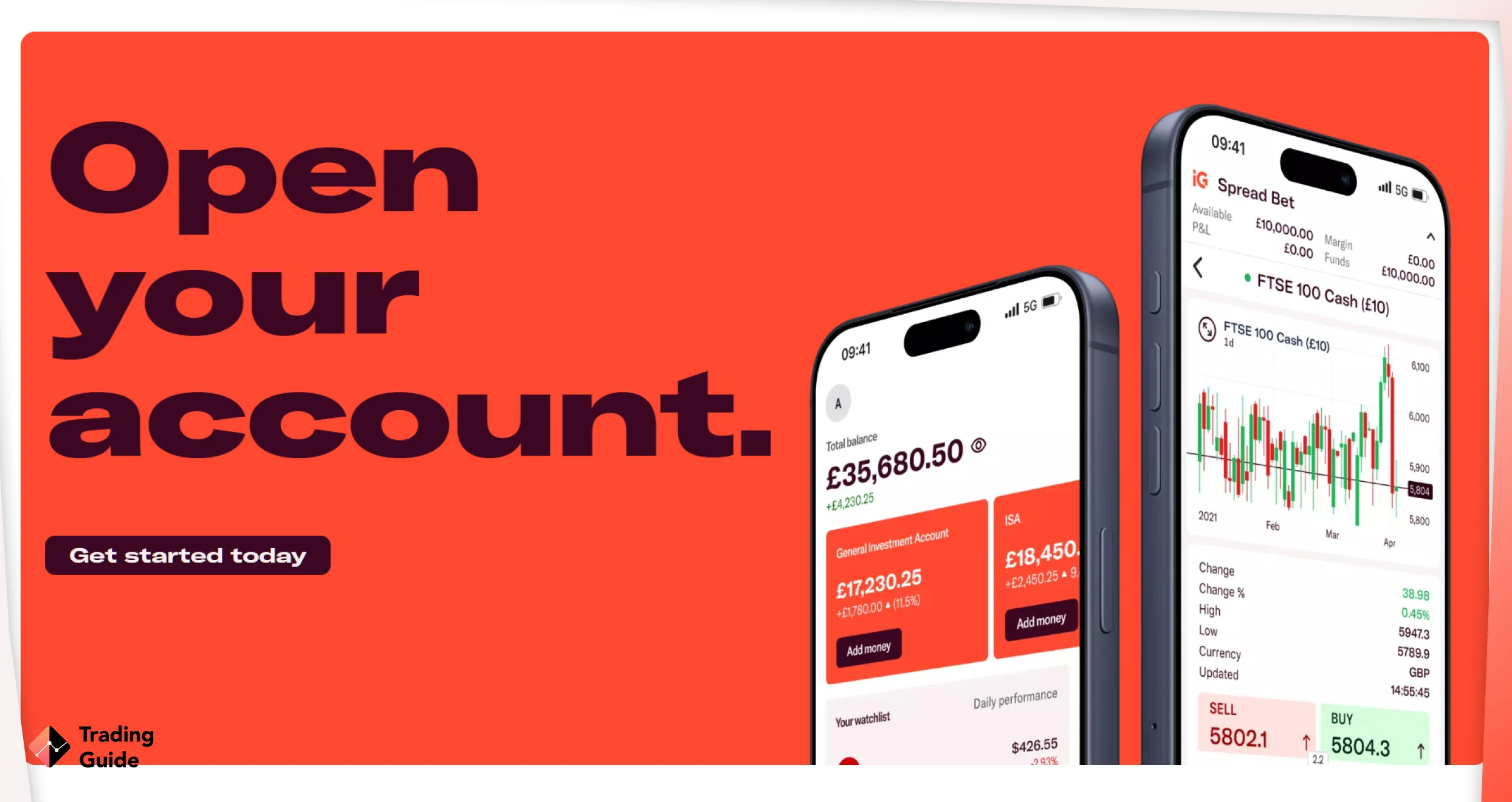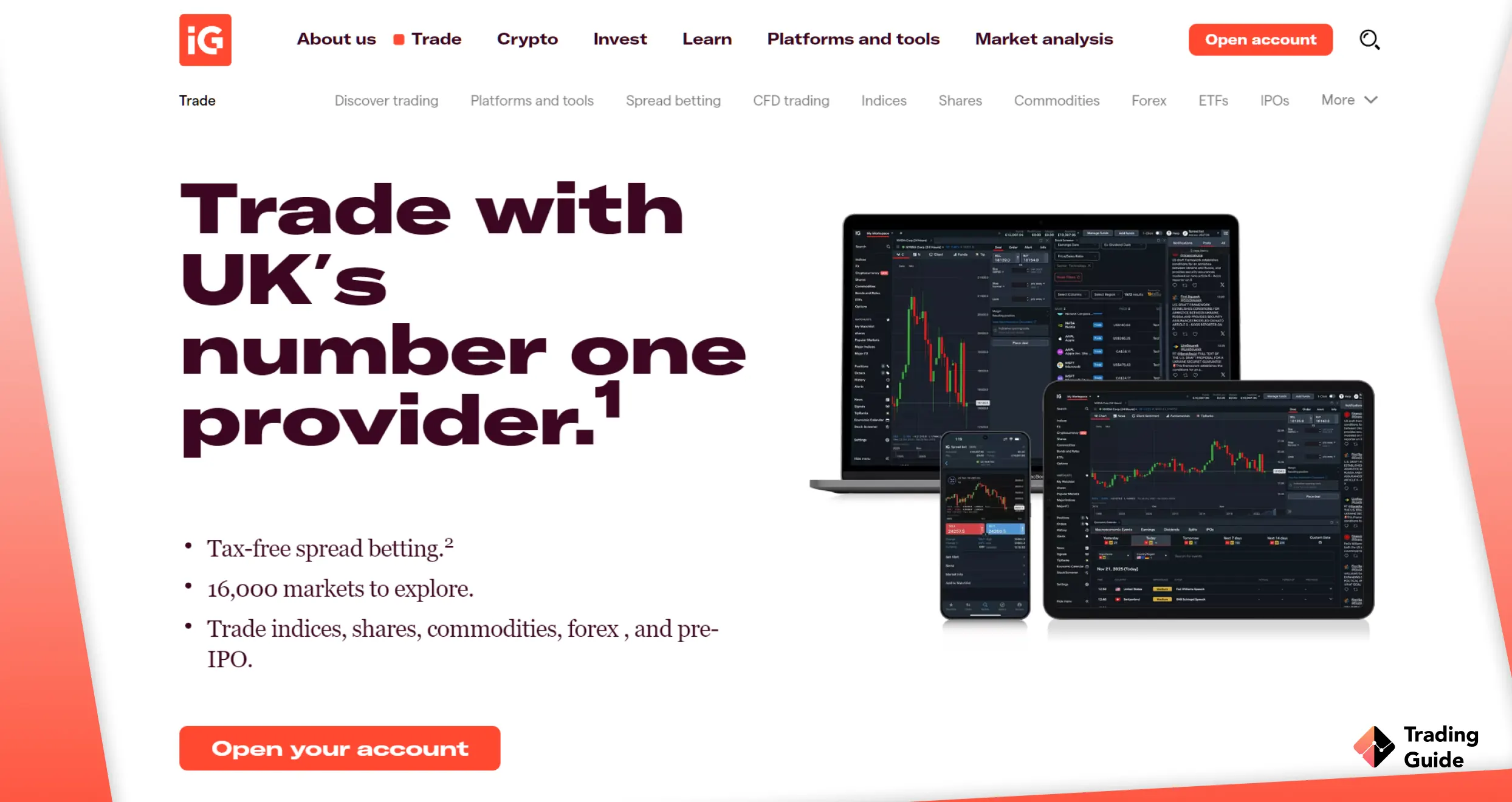Investing was once considered an exclusive game for wealthy Brits. But technology and the rise of online investing platforms have changed that. As we speak, around 14 million UK citizens have invested in stocks and shares alone. You too can join in, increase your income streams, and build long-term wealth.
The best part is you can start investing with whatever you can afford —even as little as 10 pounds. But if you’re a beginner, don’t jump in at the deep end right off the bat. Investing is a tricky business; over 70% of DIY investors are losing money. But don’t fret; with enough knowledge, you can avoid becoming a statistic and make a killing. This guide to investing for beginners UK will get you started.
What are Investments?

Investments are assets you buy while expecting them to either boost your income with regular earnings or appreciate over time and generate long-term wealth. As a Brit, various types of investments are at your disposal, from stocks and ETFs to bonds, commodities, properties, and more.
Let me make something very clear. Not all investments you’ll encounter online or otherwise are legal in the UK. Some are prohibited by the law. A good example includes products offered by Ponzi and pyramid schemes. The same applies to binary options, which were banned by the FCA in 2019 because they are incredibly risky.
When to Start Investing?
As a Brit, you have to be at least 18 to hold investments like stocks in your own name. This is required in the UK because only individuals aged 18 and above have the legal capacity to enter into binding contracts and make financial decisions. I assume you’re an adult, so this should be an issue.
If you’re below 18, don’t worry. You still enjoy the benefits of investing money UK. All you have to do is ask a parent or legal guardian to open the right account for you. It can be a junior ISA, a discretionary trust account, a junior SIPP, etc. This advice is also for adults who’d like to introduce their kids to the world of investing at an early age.
Age aside, I advise you to gauge your financial readiness before investing. That doesn’t mean you have to wait until you have thousands of pounds to spare; far from it. You can invest with any amount you can afford, even 10 bucks.
How to Invest Money in the UK
Before investing in the UK, I urge you to define clear investment goals and choose your preferred strategy. Furthermore, understand the amount of risk that comes with investing and ensure you take measures to curtail the risks for maximum potential returns.
Let’s explore how to start investing UK in 5 easy steps.
Knowledge is paramount to an investment’s success, and you should start by learning how a market you want to invest in operates. For instance, if you want to venture into stocks, note that there are plenty of them with fluctuating prices. Learn how to analyse their price trends to develop solid strategies.
Fortunately, most investment brokers in the UK support investors with learning resources to develop their skills before trying to invest. They also have demo accounts that can help you gauge your skill level. Also, there are a lot of books on trading that teach how to trade and when it is best to start. In addition, you also need equipment like a computer for trading, a mobile device, and a stable internet connection.
Once you feel confident about investing in the live market, have a budget and ensure you stick to it throughout your investment period. You see, the financial market is volatile, and you cannot be certain which direction an asset’s price will go.
This means that while you can make profits in an investment, losses are inevitable. You do not want to go through emotional trauma after a loss simply because you invested a lot of money. Simply put, the money you invest should be an amount you are comfortable losing.
An investment broker in the UK must align with your requirements. These include fitting in your budget, adhering to the FCA’s stringent regulations, and being highly recommended by users on Google Play, Trustpilot, and the App Store. Additionally, the broker should host your preferred investment asset and support you with adequate resources for maximum experience.
I have recommended the best investment brokers for beginners in the UK in the mini-reviews in the second-to-last section; you’ll get there in good time. Choose the most fitting provider based on trading costs, asset variety, execution speed, and other crucial factors.
As mentioned earlier, choose a broker you can afford by considering the minimum deposit requirement, trading fees, transaction costs, etc. Then, make the required deposit to access the available investment asset.
Once your broker confirms the deposit, choose your preferred investment security and understand your investment option. Whether you want to invest in an asset’s stock, trade it as CFDs, mutual funds, ETFs, or indices, ensure you develop a solid strategy aligning with your investment option.
Depending on your investment goals, you can decide to take a long-term or short-term position. Once you open a position, always monitor it to identify trends that could harm your investment. Note that our referenced investment brokers above have trading apps you can install on your mobile devices to track your positions on the go.
Since the stock market is volatile, I recommend applying risk management controls like stop-loss orders at all times. Most importantly, have a trading journal to note down all your investment strategies. This is so that it will be easier to identify areas you fall short in and make amends to maximise your potential.
Note that the federal government requires UK investors to pay taxes on profits made through investing in the financial market. Therefore, understand your tax liability when calculating profits to earn in an investment.
Investment Options for Beginners

To enjoy investing in the UK, you need the best broker you can find. The broker should also fit your investment goals and requirements and be regulated by the Financial Conduct Authority (FCA). In addition, it must give you access to crucial investment products, from stocks, CFDs, and indices, to mutual funds, bonds, and ETFs.
I know that it is not easy for beginners to find the best broker for investing since countless options are available in the UK, some good and others shoddy. The good news is that I did all the legwork on your behalf by testing the service providers in this region and picking the best investment options for beginners:
1. eToro
It has been more than a decade since the establishment of eToro, and the broker’s popularity continues to skyrocket. I highly recommend this service provider because it offers 7,000, and you only need a minimum deposit of $100 to get started. Plus, its platforms are user-friendly, have an intuitive design, and host a plethora of learning resources for beginners. A £100,000 virtually funded demo trading account for testing your skill level as you become more independent is also available.
Beginner investors will enjoy using eToro because it features excellent copy and social trading platforms. These platforms connect you to other new traders globally, where you will learn trading tips by sharing ideas. You can also follow expert traders so that whenever they open a potentially profitable position, it will be easier for you to mirror them and maximise your profitability.
- User-friendly and customisable platform perfect for newbies
- You only need to deposit at least £100 to access over 2,000 investment assets eToro hosts
- Beginners can take advantage of eToro’s award-winning social and copy trading platforms to learn investment techniques from other global investors
- High minimum amount of £200 is required to copy a trader’s position
- High investment fees
2. Plus500
Plus500 exposes you to a user-friendly proprietary CFD trading platform that has CFDs on shares, indices, and ETF assets. You can also invest in commodities and forex at no commission. I tested it and discovered that its users enjoy reasonable spreads and currency conversion fees. Moreover, it has no charges for transactions or managing and rolling positions.
Plus500’s low charges make it an excellent option for low-budget traders. That said, I recommend this broker mainly to active investors since it has inactivity fees that you’ll have to pay if your investment account remains inactive for more than three months. Like eToro, Plus500 has a Trading Academy to help you sharpen your skills through eBooks, videos, and FAQs.
Note: 76% of retail investor accounts lose money when trading CFDs with this provider. You should consider whether you can afford to take the high risk of losing your money.
- Plus500 offers over 2,000 assets to invest in, allowing users to diversify their portfolios and potentially increase their profits
- Zero commissions and low spreads for investing
- Highly-rated mobile app for managing your investment on the go
- Only CFD assets are featured. You cannot buy and take full ownership of an asset at Plus500
- You have to be an active investor to enjoy your experience since the broker’s inactivity fees kick in after only three months of not logging into your account
3. IG Markets
Although IG Markets is highly recommended for professional investors in the UK, newbies with advanced skills can invest using it. This is one of my favorite brokers because it hosts a wide range of assets, including shares, indices, bonds, ETFs, etc.
IG Markets hosts plenty of learning resources on its IG Academy platform to easily sharpen your skills while exploring advanced features. Like eToro, the broker also features a social trading platform for interacting with other traders. It is an excellent choice, and you can improve your chances of success with its advanced research materials. Simply figure out whether it suits your investment requirements.
Your capital is at risk
- A gazillion investment assets, including shares, mutual funds, bonds, and ETFs, for newbies to explore
- Has an IG Academy platform hosting plenty of learning resources to boost your investment skills
- Various platforms to choose from, including ProRealTime, L-2 Dealer, and MT4
- ProRealTime and L-2 Dealer platforms are only accessible via desktop. No mobile accessibility
- You can only invest in IG Markets’ assets as CFDs
FAQs
Learning how to invest is easy since the majority of investment brokers host learning resources to help you advance your skills. On the brokers, you will find articles, guides, webinars, seminars, etc. You can also learn from website blogs and listen to podcasts and youtube channels.
To ensure you are improving on your investment skills, test yourself on a broker’s demo account. You must sign up for an investment account to access the demo. Also, start investing with small amounts of money and slowly add to your capital as you become more familiar with the investment market.
There is no specific amount of money needed to start investing unless a broker has a minimum amount required for investing. Therefore with as little as £50, you can invest in the share market since most brokers allow fractional purchases. All in all, have a budget and find an investment broker that fits it. The broker should also host your preferred investment asset and allow you to invest using multiple methods.
A mutual fund is a conventional investment vehicle consisting of various asset portfolios, including stocks, bonds, etc. Mutual funds are overseen by an investment manager and are less risky considering that they host various assets. On the other hand, an index is an investment basket consisting of various stocks. It is a measurement of a section of a stock’s value, and they include FTSE 100, S&P 500, etc.
Yes. Most investment brokers in the UK, like the ones we recommend on this page, have trading apps you can easily download from Google Play and the App Store. Mobile apps allow you to easily track your position whenever you step away from your trading station, meaning you still need your desktop for thorough research and strategy development.
Conclusion
You’ve learned the basics of investing, including where and how to invest money UK. That said, while recommending investing in assets like stocks and shares, I have to warn you. The UK isn’t devoid of scammers.
As an investor, you are exposed to everything from boiler room and crypto scams to the pitfalls of Ponzi and pyramid schemes. Fortunately, you can avoid them. The best way to do that is by investing without relying on third parties. Most importantly, use regulated and reputable brokers like the ones recommended here.






















